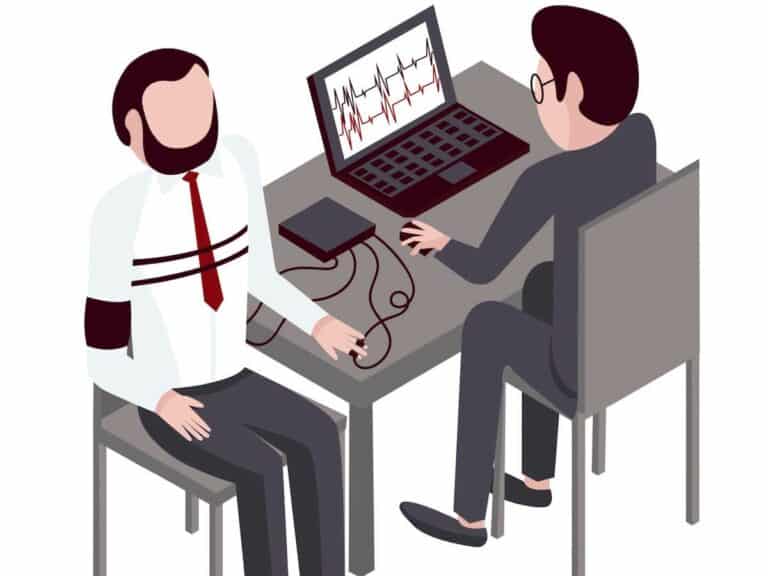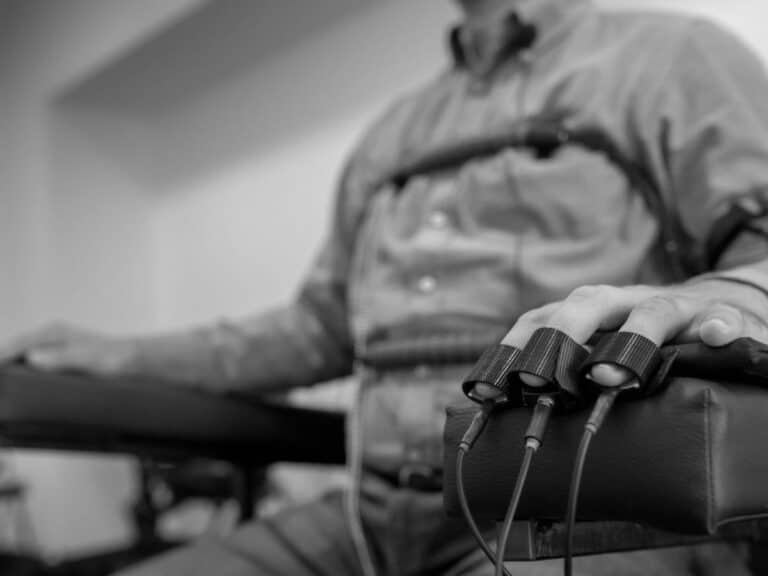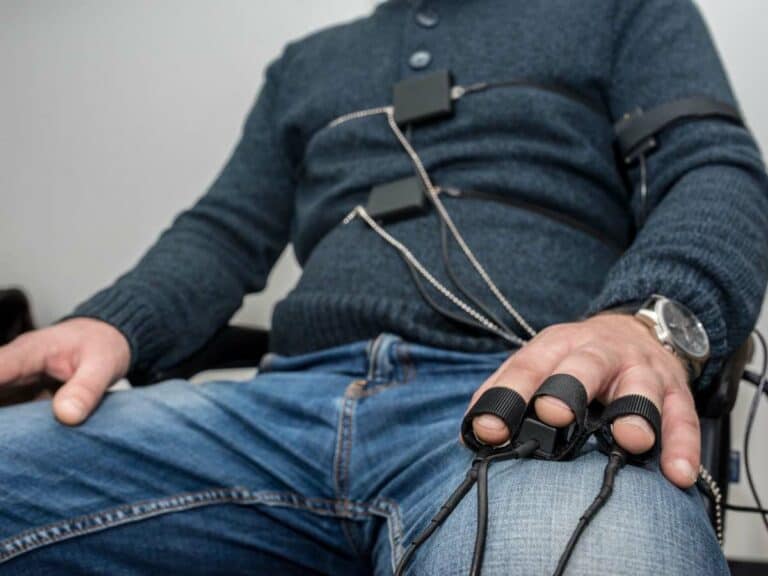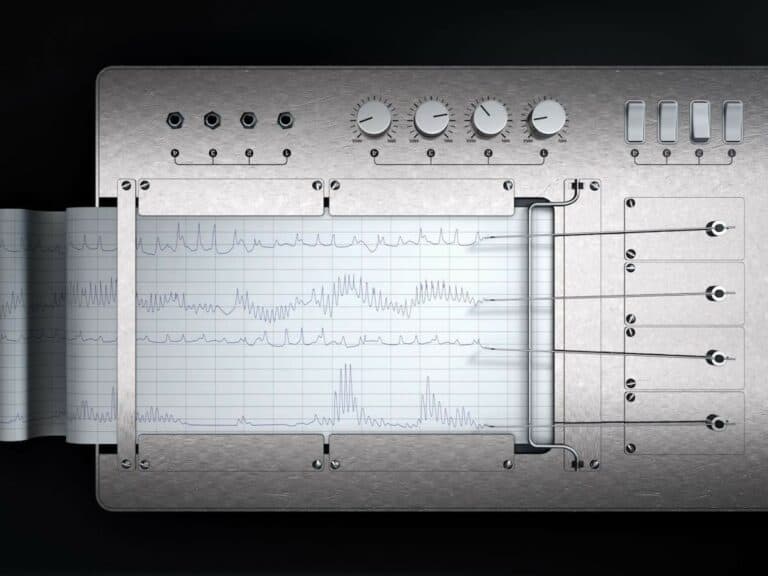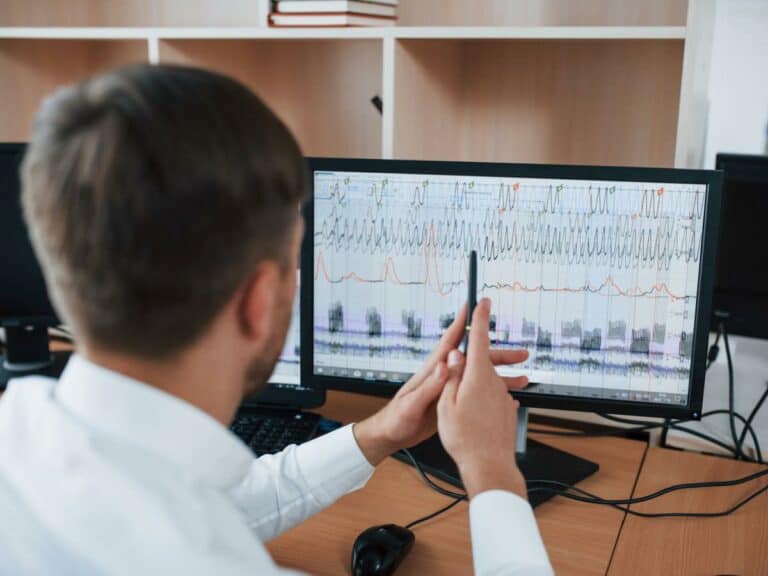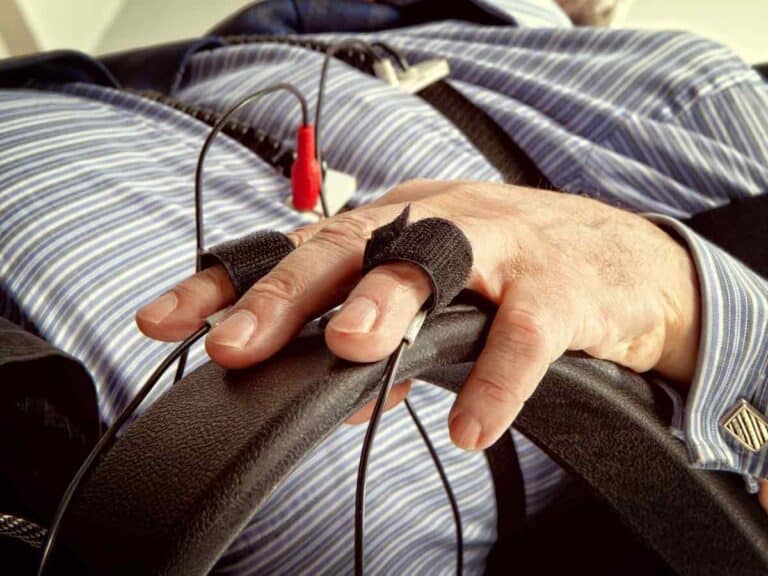Can Anxiety Disorder Cause False Positives on a Polygraph?
Anxiety disorder can cause various changes in the body. Some common examples include increased blood pressure, elevated heart rate, faster breathing rate and increased sweat production. Many of these things also happen to people who are lying. And this brings us to this pressing question: can having anxiety make one fail a lie detector test?
Individuals who are having an anxiety attack during a polygraph may fail the test, getting a false positive result. That’s because being anxious causes physiologic reactions that translate to deceitfulness. Polygraph examinees under medications for anxiety disorder or some other mental condition, meanwhile, may end up with a false negative or inconclusive result.
Diagnosed with anxiety disorder by a psychiatrist? Prescribed with an anxiety drug that you need to take daily?
In this post, I will talk about how it can impact your polygraph.

Symptoms of Anxiety
Whether there’s a real threat or only a perceived one, the symptoms of anxiety tend to be the same in an individual who has anxiety disorder. How long the symptoms of anxiety last per episode can vary from person to person or circumstance to circumstance — it’s not the same for all anxiety sufferers.
In some instances, the symptoms go away after the source of stress or fear is removed or over, such as a polygraph examination that can easily scare even those who do not have anxiety.
Many of the symptoms of anxiety disorder can cause a false positive on a lie detector test.
Because an anxiety attack triggers the fight or flight response, it causes the blood pressure to rise. It’s no secret among those who have some or lots of knowledge about polygraph testing that one of the things that the instrument measures and records is the blood pressure. It goes without saying that a high blood pressure can look like deception.
When the blood pressure increases as a result of anxiety, naturally, the heart rate speeds up, too — a polygraph examiner looks for spikes in the heart rate when interpreting the chart.
The respiration rate follows suit, which is another important physiologic process monitored.
Unfortunately, you don’t have to be guilty just to be anxious during a lie detector test. You can be completely innocent and totally honest during the session and still have an overwhelming fear that can make you look like you’re lying.
A polygraph exam is a test, and there’s such a thing as test anxiety, which is under performance anxiety. And just like other individuals who are suffering from test anxiety taking other examination forms, someone who is undergoing a polygraph test may end up failing it.
White coat hypertension is also something that can affect a polygraph.
Simply put, white coat hypertension occurs when the blood pressure reading of a person is higher when at the hospital, clinic or a health care provider’s office than it is when in other settings, such as at home. A lie detector machine is certainly not a medical instrument — but the various sensors it has closely resemble some medical instruments!
The symptoms of anxiety can be debilitating and exhausting at times, affecting the work or school performance and everyday interactions and relationships of the person who has the mental disorder.
It can also be incapacitating enough as to affect an individual’s functioning during a polygraph test.
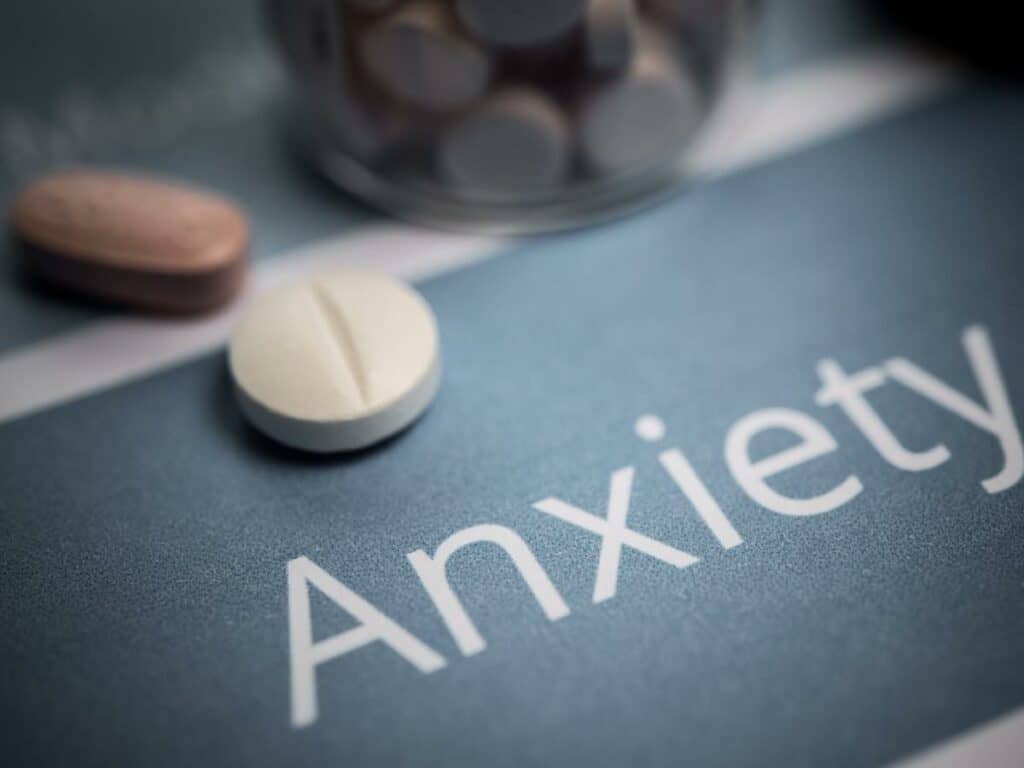
Anxiety Medications
Some of the most widely prescribed medications for people who are suffering from anxiety are referred to as benzodiazepines. Also sometimes called tranquilizers, benzodiazepines are fast-acting medications. So much so that they can take full effect in as short as 30 minutes.
It’s due to the fact that benzodiazepines can provide relief from symptoms quickly why they are effective when taken during a panic attack or any other overwhelming episode of anxiety.
The following are some examples of benzodiazepines:
| GENERIC NAME | BRAND NAME |
| Alprazolam | Xanax |
| Clonazepam | Klonopin |
| Diazepam | Valium |
| Lorazepam | Ativan |
Just like most other medications, benzodiazepines do not come without side effects, many of which can make a person unfit to take a polygraph examination or get an inconclusive or false negative test result. Some of them are:
- Confusion
- Depression
- Dizziness
- Drowsiness
- Impaired coordination
- Impaired thinking
- Memory problems
- Nausea
- Slurred speech
Benzodiazepines, as mentioned earlier, are also known as tranquilizers.
Needless to say, they can depress various physiologic responses — they can lower the blood pressure, heart rate and respiration rate. Coincidentally, these are the very same things that a polygraph machine monitors.
If your blood pressure, for instance, remains practically the same throughout the exam, the examiner may report an inconclusive verdict. This means that he or she is unable to come up with a definite diagnosis of truth or deception. Heart and breathing rates that do not vary that much, if at all, can also lead to the same thing.
Anxiety is not the only thing that can affect a polygraph but also medications for it.
Whether an individual who is about to undergo a lie detector test admits to taking a benzodiazepine beforehand or is exhibiting some of the most common signs of its intake, chances are that the polygraph examiner will decide to reschedule the exam as the result is going to be likely inconclusive or even lead to an error.
The Pre-Test Phase
Especially if the individual has very little to no understanding or knowledge of a lie detector test and the machine used in administering it, chances are that he or she may feel very anxious before and during the examination. The same is true whether or not the person is suffering from anxiety disorder.
It’s a good thing that the polygraph examiner will not immediately jump to asking questions.
A polygraph test is divided into 3 distinct phases. And the initial phase is what’s referred to as the pre-test, which can be extremely beneficial, especially for those with anxiety disorder.
There are many things that happen during the pre-test phase of a lie detector exam. As a matter of fact, it’s the longest phase of the entire procedure, taking anywhere from 45 to 90 minutes to complete. The pre-test phase, when properly executed, can help lower the risk of the exam leading to an inconclusive result or an error.
Explaining to the examinee the entire polygraph procedure as well as the lie detector machine and its components — this is something that the examiner does during the pre-test phase.
In most instances, this alone can help someone who is anxious attain confidence and relaxation.
Establishing the physical, psychological and physiological history of the examinee is another thing that the polygraph examiner does during the pre-test phase, which allows him or her to determine whether or not the examinee is suited to undergo the polygraph test. Any medications being taken, if any, will be asked, too.
The presence of severe anxiety or intake of anxiety medications may leave the administrator of the lie detector test with no other choice but to reschedule the exam in order to avoid wasting the time of both parties.
Besides anxiety disorder, any severe or serious form of mental illness, such as PTSD or schizophrenia, can also interfere with the results of a lie detector test. Typically, people who suffer from them are not subjected to a polygraph.
Read Also: How Accurate are Polygraph Tests
Just Before You Undergo a Polygraph Examination
It’s normal for anyone who is about to undergo a lie detector test to feel anxious — including someone who is completely innocent and planning on being truthful the entire time. But anxiety disorder can complicate things, which is true even if the mental issue is under control with the help of medications.
Diagnosed with anxiety disorder and taking medications for it? Make sure that you inform the polygraph examiner about it during the pre-test phase so that the necessary steps may be taken.
Related Questions
Can taking alcohol to calm you down help you pass a polygraph test?
The intake of alcohol or sleeping pills or tranquilizers before having your lie detector test will contaminate the result. As a matter of fact, the polygraph test may not even push through when the examiner realizes you have consumed alcohol beforehand in order to attain relaxation.
Does lack of sleep affect the result of a lie detector exam?
Lack of sleep as a result of insomnia or anxiety about taking a polygraph exam can have an impact on the outcome, usually causing a false positive result. Sleep deprivation can increase stress levels, which can then stimulate various physiologic responses a polygraph machine measures.

